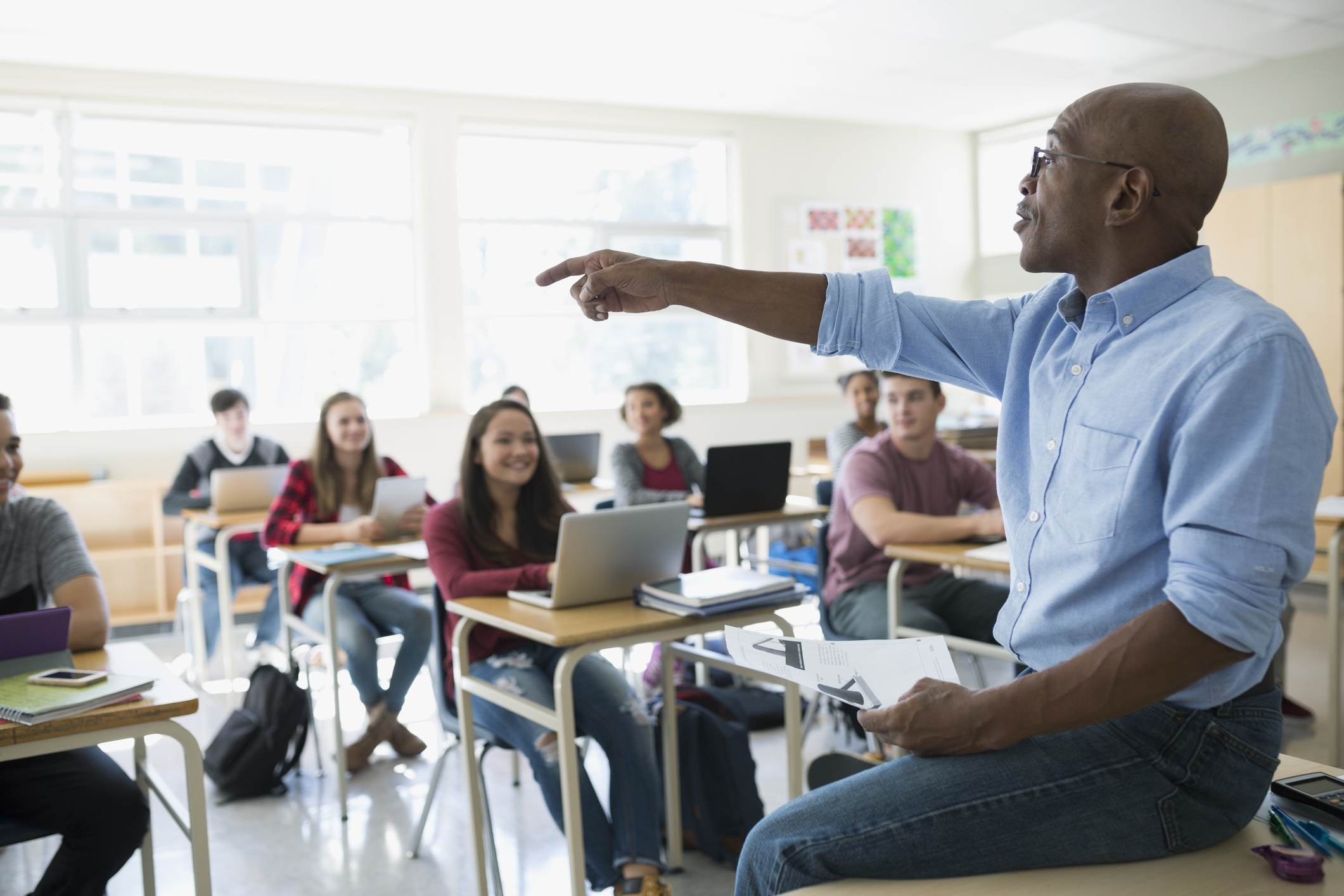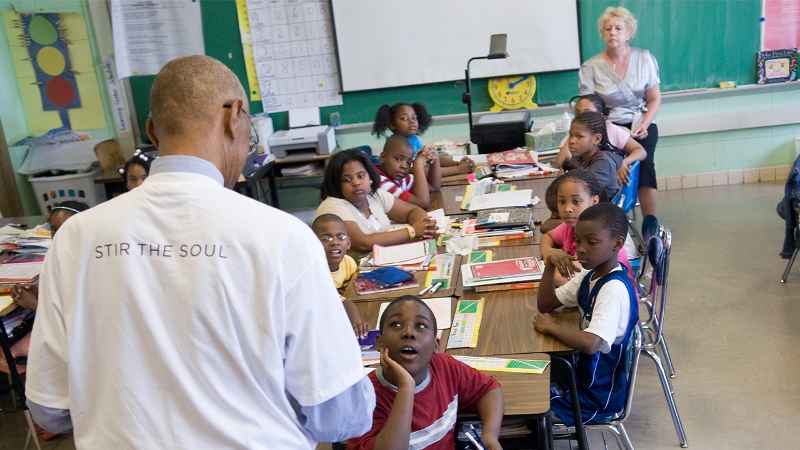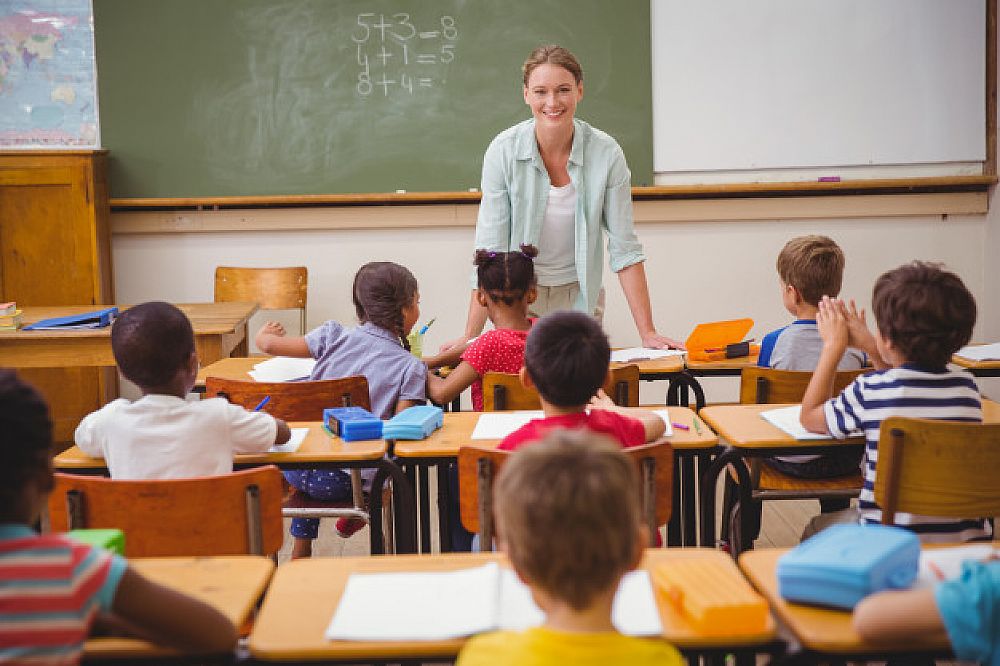Effective Primary Science Tuition Singapore for Better Exam Results
Effective Primary Science Tuition Singapore for Better Exam Results
Blog Article
Exploring the Different Teaching Approaches in Main Science Education Today
The landscape of main scientific research education is progressing, with numerous mentor methods obtaining prominence in modern class. Inquiry-based knowing, hands-on experiments, and the assimilation of innovation are redefining how educators engage young minds. Furthermore, collaborative approaches and differentiated direction are being employed to cater to the varied requirements of trainees, enhancing both engagement and understanding. As we take a look at these methods, questions develop regarding their performance and the effects for future instructional practices. What might these shifts in technique mean for the following generation of students?
Inquiry-Based Knowing
Inquiry-Based Discovering (IBL) is an instructional approach that urges pupils to check out clinical concepts through doubting, examination, and hands-on trial and error. This approach emphasizes the function of pupils as active participants in their learning, advertising essential reasoning and analytical skills. By engaging with real-world inquiries, pupils end up being motivated and interested, which improves their understanding of scientific concepts.
In IBL, teachers act as facilitators, assisting students as they browse their queries rather than delivering info directly. This student-centered approach permits for distinction, fitting numerous discovering rates and styles. Pupils create skills in developing hypotheses, creating experiments, and analyzing data, which are important for scientific literacy.
Furthermore, IBL fosters cooperation among trainees, urging them to share concepts and findings. This cumulative inquiry promotes social skills and a feeling of neighborhood within the class. The procedure of inquiry motivates strength, as trainees learn to welcome failure as a stepping rock toward understanding.
Hands-On Experiments
Hands-on experiments are a vital part of reliable science education, matching the concepts of inquiry-based understanding. These experiments permit pupils to engage directly with clinical concepts, promoting a much deeper understanding through experiential discovering. By manipulating materials and observing outcomes, young students can grasp abstract theories in tangible means.
Such activities advertise vital thinking and analytical skills, as trainees hypothesize outcomes, conduct experiments, and evaluate outcomes. This procedure motivates them to ask questions, fine-tune their understanding, and create a scientific mindset. Moreover, hands-on experiments can be customized to varied knowing styles, guaranteeing that all students have the chance to engage meaningfully with the material.
Moreover, hands-on experiments usually urge partnership amongst peers, promoting synergy and communication abilities. Working in teams allows pupils to share concepts, review searchings for, and find out from each other, which enhances their overall educational experience.
Including hands-on experiments right into the main science curriculum not just improves the finding out setting but likewise grows a long-lasting rate of interest in science. By proactively joining their education and learning, students are more probable to develop an enthusiasm for clinical questions that expands beyond the class.

Technology Integration
Incorporating modern technology right into main science education and learning has come to be significantly important in fostering trainee involvement and enhancing discovering end results. Making use of digital devices, such as interactive simulations, online laboratories, and instructional software program, provides pupils with opportunities to discover scientific principles in cutting-edge ways. These resources help with a deeper understanding of intricate topics by allowing students to visualize and control variables that would certainly be not practical in a standard classroom setting.
Additionally, innovation combination motivates customized finding out experiences. Pupils can advance at their own pace, revisiting tough ideas through multimedia sources, which accommodate various learning designs. This adaptability not only sustains individual growth yet likewise grows a feeling of freedom in students.
Additionally, innovation serves as a bridge to real-world science, linking pupils with present research study and professional payments. Access to clinical journals and online databases expands students' point of views on clinical query and promotes crucial thinking abilities.
Collaborative Discovering
Joint understanding plays an essential function in primary science education by cultivating team effort and communication abilities amongst trainees. This strategy encourages learners to work together, share expertise, and take part in problem-solving, which improves their understanding of clinical ideas. By participating in group activities, pupils learn to express their concepts, listen to varied viewpoints, and negotiate remedies, all of which are necessary skills in both real-world and academic contexts.

Research study suggests that joint understanding can lead to enhanced motivation and involvement in science subjects, as pupils locate enjoyment in shared experiences (primary science tuition Singapore). Additionally, this strategy prepares pupils for future collaborative ventures, outfitting them with the skills required for efficient team effort in greater education and expert settings. Eventually, embracing collective knowing in key science education can significantly enhance the knowing experience and advertise a deeper understanding of scientific query
Separated Guideline

Differentiated instruction can manifest in various means, such as varying the web content, procedures, or products of discovering. As an example, teachers may make use of tiered projects that give differing levels of complexity, permitting pupils to operate at their particular readiness levels. In addition, adaptable organizing techniques can help with partnership amongst students with various abilities, promoting peer learning.
Assessment plays an essential duty in this method, as it educates guideline and assists educators recognize each student's distinct demands. Formative analyses, such as tests and observations, can assist educators in readjusting their approaches to improve finding out end results. primary science tuition Singapore. Inevitably, by applying set apart instruction in key scientific research education and learning, teachers can cultivate a much more equitable and effective knowing atmosphere, equipping all pupils to reach their complete possibility in comprehending scientific sensations
Verdict
In recap, the varied teaching techniques in key scientific research education and learning, consisting of inquiry-based learning, hands-on experiments, technology combination, collective understanding, and set apart direction, jointly add to a more effective discovering setting. These approaches promote essential reasoning, analytic abilities, and a much deeper comprehension of clinical concepts. By implementing these strategies, teachers can create engaging and encouraging classrooms that resolve the varied demands of students, ultimately promoting a lifelong rate of interest in i loved this science and enhancing academic accomplishment.
Inquiry-Based Knowing (IBL) is a pedagogical method that urges students to explore clinical ideas through doubting, examination, and hands-on trial and error.Collaborative knowing plays a vital duty in key science education and learning by fostering team effort and communication skills among students.Study indicates that collective learning can lead to boosted motivation and involvement in science topics, as trainees locate satisfaction in common experiences.In promoting a comprehensive knowing atmosphere, set apart direction emerges as an essential technique to suit the varied requirements and capabilities of students in key scientific research education. Inevitably, by applying distinguished guideline in primary scientific research education and learning, teachers can grow an extra equitable and effective discovering atmosphere, empowering all students to reach their complete potential in recognizing clinical phenomena.
Report this page